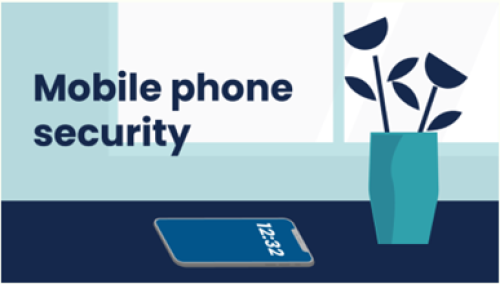On this page
In healthcare, we take our digital and physical security very seriously, understanding that if our patients’ information got into the wrong hands, it could have serious consequences. Securing our physical environment and our devices is an important step to ensuring we are cyber safe.
Physical security
We all play a part in keeping our work environment secure.
- Lock your screen when you step away from your computer
- Keep passwords safe
- Keep physical files out of sight and away from public areas
- Look out for people who don’t belong
- Look out for each other, look out for unusual behaviour, and speak up if something doesn’t feel right.
Video transcript
At Health New Zealand, we take our digital and physical security very seriously, understanding that if our patients’ information got into the wrong hands, it would have serious consequences.
Don’t leave files on your workstation visible, you could put patients’ confidential information at risk.
Lock your screen when you step away from your computer.
If you’re accessing physical files or printing confidential documents, don’t leave them unattended as unauthorised people could access them.
While holding the door for someone might seem like the right thing to do, everyone must scan in with their own Health NZ ID to prevent someone unauthorised accessing a restricted area or confidential information.
If you notice someone without a Health NZ ID trying to access a restricted area, ask them who they’re visiting and escort them to a public space to wait or let Security know.
Stay alert to your surroundings and be wary of any suspicious behaviour from members of the public.
If you see something suspicious, ask them if you can help or notify security.
Keep confidential information safeguarded at all times.
Protect the privacy and location of yourself and others by taking care photographs don’t display your ID card.
We all play a part in keeping our work environment secure.
Look out for each other, look out for unusual behaviour, and speak up if something doesn’t feel right to you.
Mobile phone security
When using a mobile phone (both personal and work), it’s important to keep it physically safe. You can help protect your and your organisation’s information with the actions included in this tip sheet.


Working from home
When working from home, your home becomes your workplace. Take care of the information you create, store and share to keep it safe.
Think about:
- Moving to another room to ensure privacy while working
- Keeping passwords safe
- Changing the default password on your Wi-Fi router
- Locking your screen when away from your device
- Keep it to yourself that you are working from home. You may be targeted by cyber criminals if they know your location.
Video transcript
When you work from home, your home becomes your workplace.
The tools you use to do your work and the information you create, store and share with others needs special care to keep it safe.
You may share your home workspace with people who wouldn’t typically inhabit your usual workspace.
They may be curious about your work, but keep specifics about patients, projects, finances, and business plans to yourself.
Respect the privacy of those you work with by having conversations in private places when possible.
Keep it to yourself that you’re working from home.
You could be targeted by cyber criminals if they know your location, especially from photos or comments made on social media.
Keep your passwords safe and change the default password on your WIFI router and enable automatic updates on it.
Lock it up! Lock your screen when you head to the loo or to grab a coffee, and lock your house if you can’t take our laptop with you.
Keeping your phone secure, does mean that you won’t miss that all important message but most importantly, you’re less likely to leave it somewhere or have it stolen.
If that does happen, or a little accident occurs advise the Service Desk immediately.
What may seem to be small things do all add up to GREAT home security.
Watch next
-
Not all links are created equal (goes to another website)
While links in messages may be normal, not all links can be trusted. Learn how to identify suspicious links. -
Stop. Think. Act. (goes to another website)
It’s easy to click on links in text scams when we are busy or distracted. Look for the warning signs and take a second to think before acting.